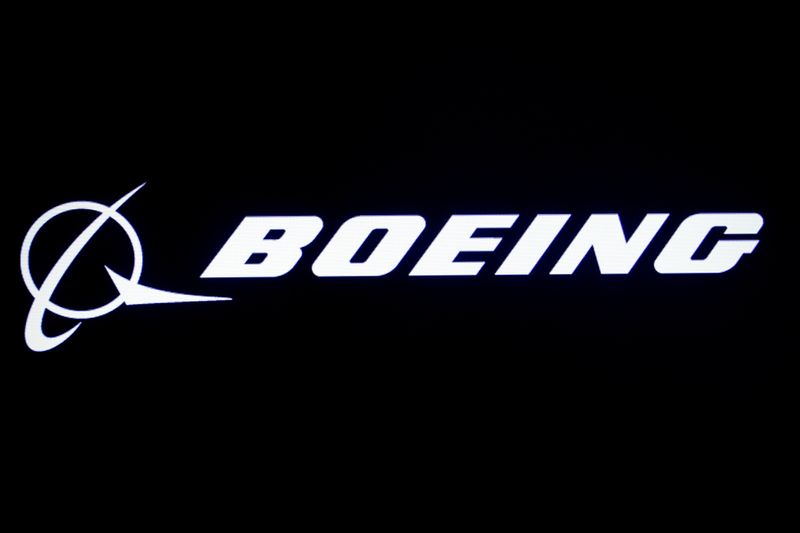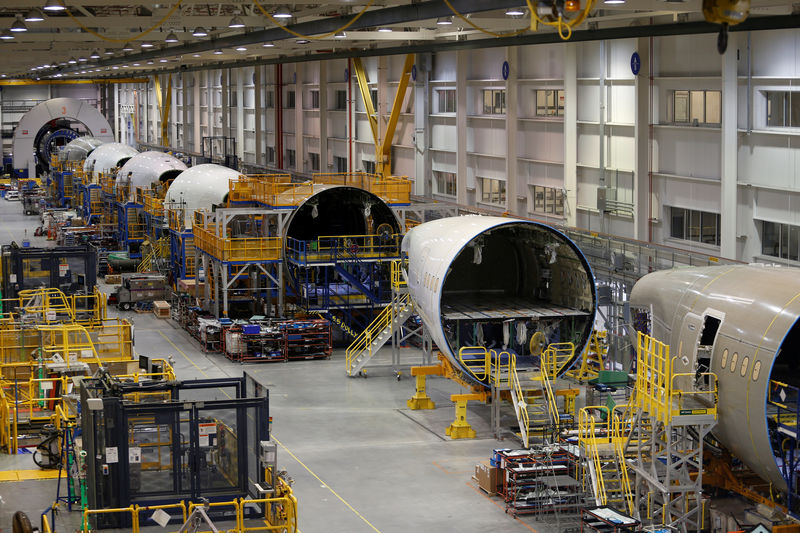By Tim Hepher and Jamie Freed
SINGAPORE (Reuters) - Airlines are facing a fall in profits as the coronavirus crisis hits passenger demand and prolongs weakness in economically sensitive air freight, planemaker Boeing (N:BA) warned on Wednesday.
After years of financial volatility marked by a race for market share, the airline industry has been profitable for the past decade due to widespread restructuring and strong demand.
But concerns are growing over the impact of travel restrictions to and from China following the outbreak of the virus, which come on top of recent trade tensions and signs an industry cycle is peaking.
A two-thirds drop in the number of seats offered by Chinese airlines will hit their revenues, Ihssane Mounir, Boeing's senior vice president of commercial sales & marketing, said.
"China has reduced capacity by 70%; that is money, that is revenue," he told reporters at the Singapore Airshow, attendance at which has been sharply reduced because of the virus.
Boeing also said the air cargo industry was unlikely to grow this year because of challenges in China where the coronavirus was first discovered in December.
The world's biggest manufacturer of freighter aircraft had previously forecast air freight would grow by 1% to 2% this year, in part due to the United States and China forging an interim trade deal.
"That is going to see pressure as well," Randy Tinseth, vice-president of marketing at Boeing Commercial Airplanes, told reporters separately, referring to the U.S.-China deal.
The coronavirus crisis has dimmed hopes of a rebound for air cargo after its worst year since the financial crisis, the International Air Transport Association has said.
CHINA DELIVERY DELAYS
The trade deal had been expected to spur Chinese purchases of wide-body jets including the 777X, which staged a maiden light this month amid a lull in sales.
While Boeing said it was too early to say whether orders from China would be disrupted by the virus, some deliveries of 777 and 787 aircraft previously sold to China have been delayed.
Boeing started the year with zero overall sales in January for the first time in decades, while rival Airbus (PA:AIR) had its strongest showing in at least 15 years.
January, however, is not always a reliable indicator for the year as a whole, analysts said.
Mounir said Boeing was in talks with several potential customers for wide-body aircraft.
"It was a slow January but it doesn't mean it is going to be a slow February or slow March, so watch this space."
Leasing firms could benefit as airlines try to lighten balance sheets and rent rather than buy during the health crisis.
"Before the virus even started to become a news point in January, we’d already seen airlines come to us in scale...with concerns of a slowing economy and trade war," Domhnal Slattery, chief executive of Dublin-based Avolon said after reporting higher 2019 results.
Against such a backdrop, airlines were likely to become conservative and prudent with their cash, he added.

"That trend had already started and will unquestionably be accentuated now with the coronavirus, although the airlines involved in relation to the virus tend to be much more Asia-centric," he told Reuters in a telephone interview.
